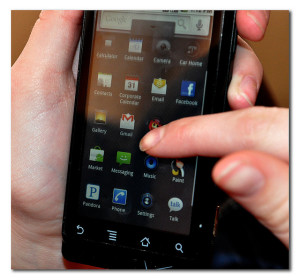Good morning,
This article from NALS gives us some survivor tips on phone etiquette in the office. Read about it below.
“Survivor Tips: Phones in the Office
Hello! I’m back from the NALS 59th Annual Education Conference in Branson, Missouri – what a blast! Hope you have been following along on the NALS website or via Twitter. If not, search for #NALS10 on either site and voila! – you can read all about it.
Luckily, there weren’t too many cell phones interrupting speaker presentations. It reminded me that this edition of Survivor Tips is about Cell Phone and Office Phones-Uses and Abuses.
Office phones are to be used for business and cell phones should be used for personal business. No brainer – right? Well, if you work in my office building, you may be in a mobile phone dead zone which means that your cell phone may cut out on you at any time. That makes handling personal business by cell phone quite difficult and you may need to resort to using the office phone. Make sure you know the office policy regarding making personal phone calls at the office and closely adhere to it. Make those personal calls before the day starts or on your lunch hour.
Put your cell phone on vibrate or silent notification while in the office or in a meeting. It’s very distracting (and sometimes embarrassing) to hear your Taio Cruz ringtone throughout the office.
Do not answer your cell phone or respond to text messages when you are in a meeting, particularly with clients or the attorneys of the office, or in court. For most people, watching others text while they are talking translates into your not paying attention to what is being said–a bad impression to make.
However, if the message concerns office business and there is an appropriate opportunity, excuse yourself from the meeting and handle it somewhere private. The message should be considered confidential business unless it directly relates to the meeting you are attending so the rules of confidentiality apply. Do not answer personal messages unless it is an absolute emergency (such as an immediate family member in the hospital – not your friend’s crisis that can wait until after hours). Also, if there is an appropriate opportunity at the end of the meeting, it is a good idea to apologize to the speaker for leaving the room to take the message.
Remember, people want to feel as if they are the most important person to you. Be conscious of this fact and considerate of the people you interact with in the business world.
PattiPP
Patricia E. Infanti, PP, PLS
2010-11 NALS President
president@NALS.org”






